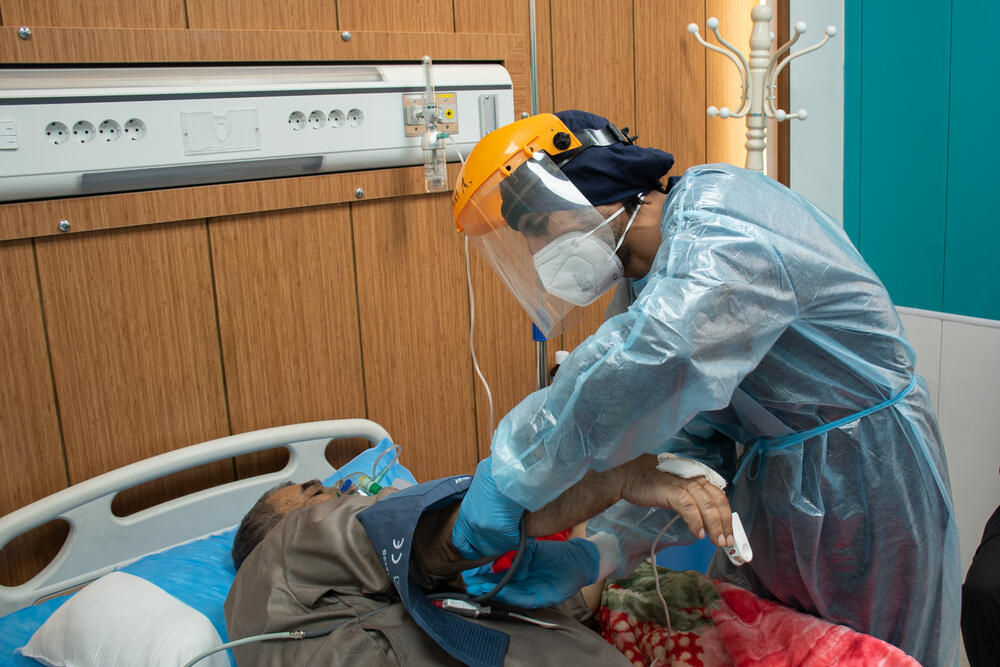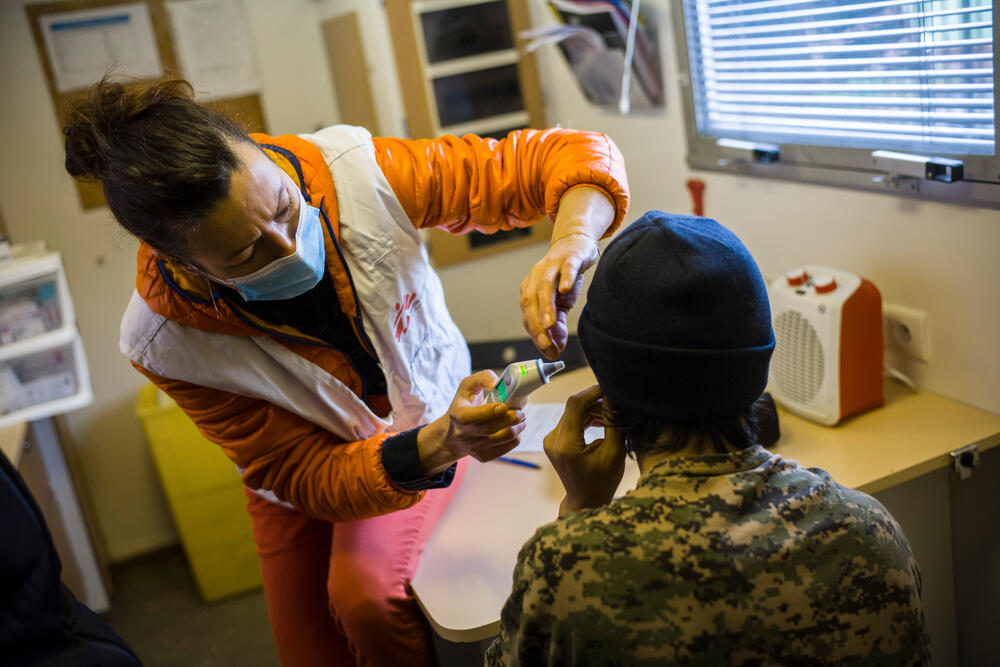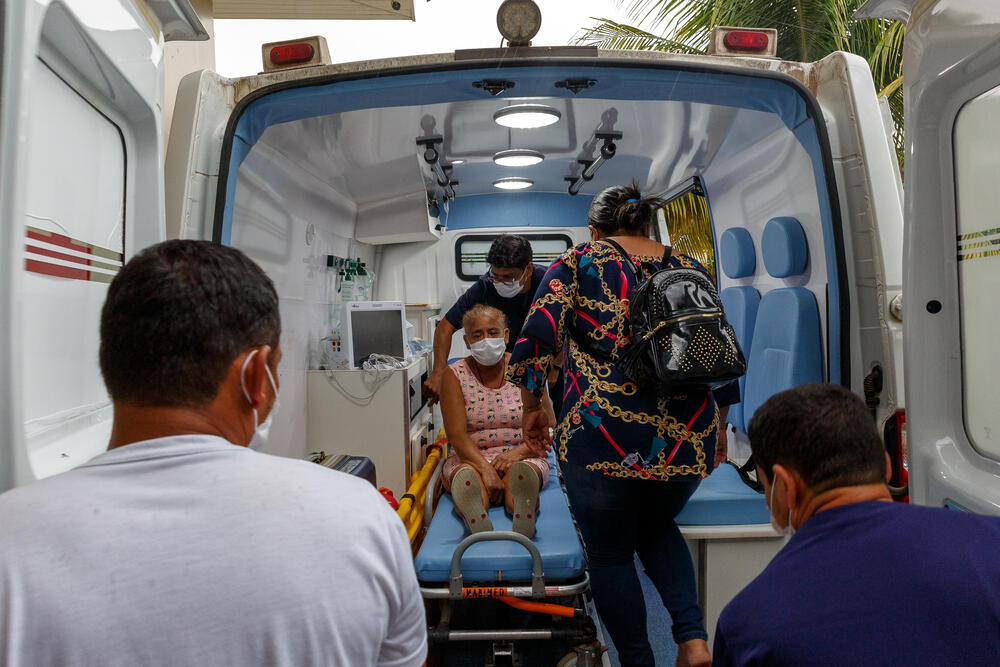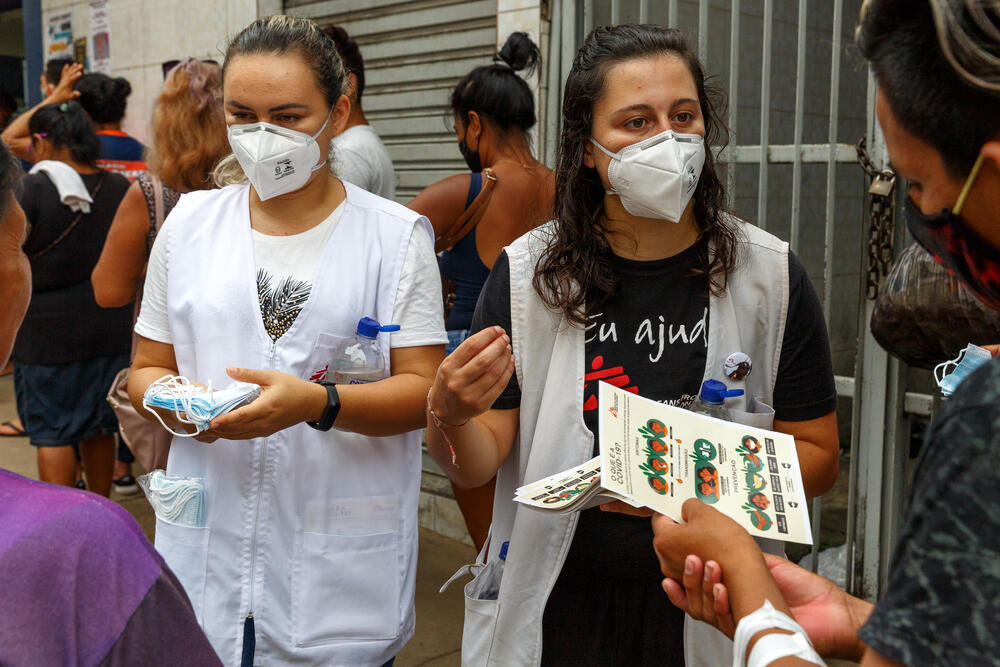Five myths the UK Govt uses to oppose wider access to COVID technologies
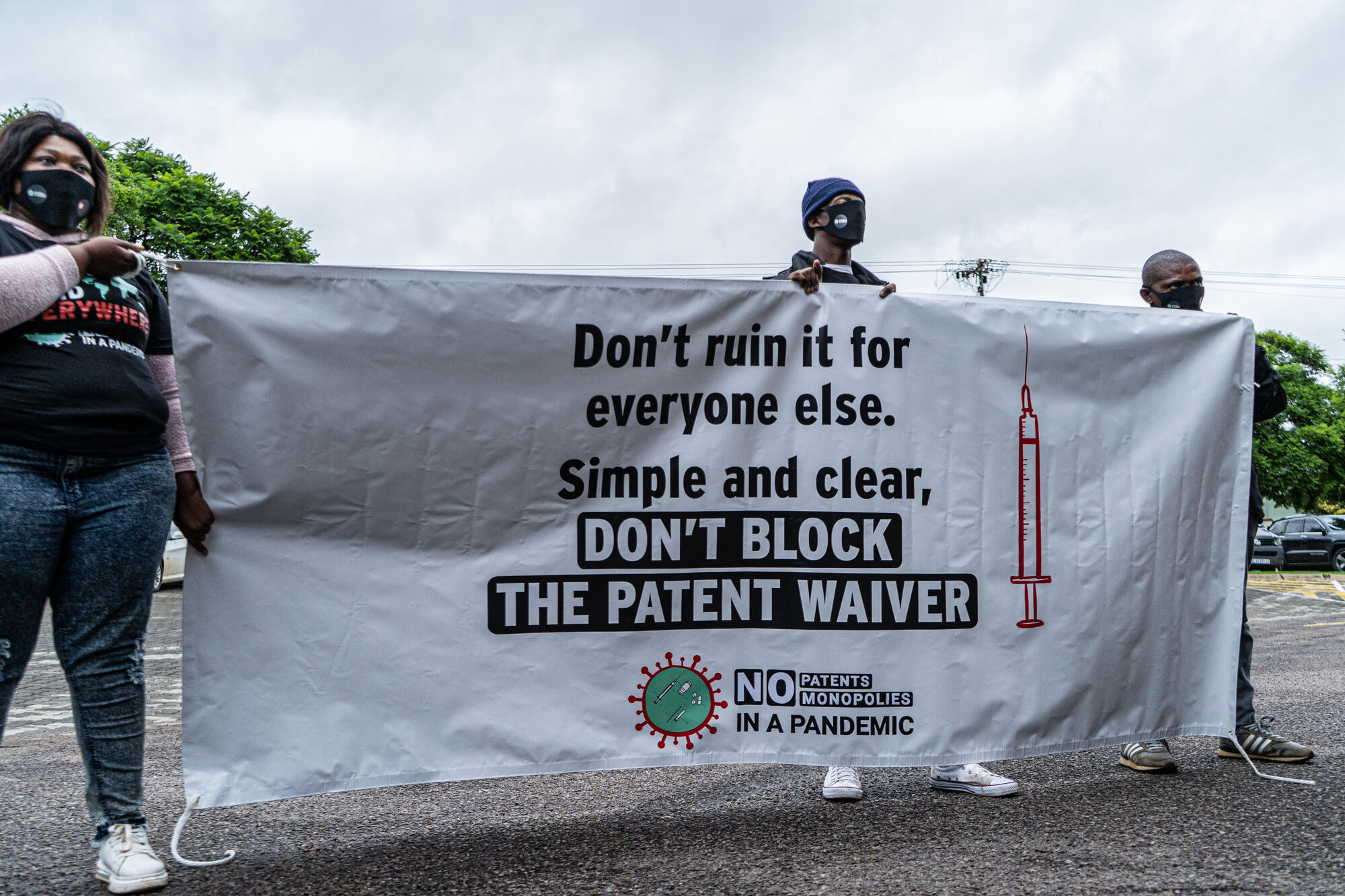
We need the UK Government to support measures which will help make more COVID treatments, vaccines, tests and technologies available for everyone.
Unfortunately, not only is our Government refusing to support these proposals – it’s actively blocking them, along with a number of other countries with large pharmaceutical sectors.
The claims the Government makes to defend this approach are similar to the talking points of the pharmaceutical industry – suggesting their concerns are more about protecting profits than widening access and ending this pandemic sooner.
Here are the top five myths the UK Government and pharma industry are pushing to oppose the removal of legal barriers which limit access to COVID medical technologies for all:
MYTH: Pharmaceutical companies took big risks with their own money to develop COVID vaccines
Pharma companies have been praised for taking risks by investing in COVID medical technologies, such as vaccines. But in reality, public funding was the key driver behind vaccine development.
In the UK, it was researchers at Oxford University who developed the so-called ‘AstraZeneca’ vaccine. Our own government put over £65 million of public money into research, development and manufacture of this vaccine.
AstraZeneca played a role in trials and manufacturing, but by their own admission they did not risk their own money in developing the vaccine. In May 2020, they stated that “expenses to progress the vaccine are anticipated to be offset by funding by governments.”
In short, AstraZeneca may have taken risks – but it was with our money, not theirs.
65,000,000
£ the UK Government has spent on the 'AstraZeneca' vaccine.
337,000,000
£ the UK Government has invested across vaccine development.
7,420,000,000
£ amount governments globally have invested in six front-runner vaccines.
MYTH: “There would be no vaccines if it wasn’t for the global pharmaceutical industry” [Matt Hancock, 9 Feb 2021]
This claim by the Health Secretary will be news to publicly funded Oxford University researchers. They had already developed the vaccine before AstraZeneca became involved.
Initially, Oxford said they would like to open-source their vaccine, ensuring the technology was available to any manufacturer. However, according to news reports, they then changed course and “signed an exclusive vaccine deal with AstraZeneca that gave the pharmaceutical giant sole rights” to the vaccine, meaning they now control who gets access and at what price.
As the BBC has reported, “initially, firms didn't rush in to fund vaccine projects” because they didn’t think there was much money in it: “Creating vaccines, especially in the teeth of an acute health emergency, hasn't proved very profitable in the past.”
Seen enough?
Join our campaign and make a difference now. Let's end this pandemic sooner.
Where do countries stand on the waiver?
More than 100 countries back South Africa and India's proposed IP waiver to the World Trade Organisation that would allow governments to waive intellectual property rights that companies hold on COVID medical technologies for the duration of the pandemic.
But as you can see many in the 'global north' are actively seeking to block it, ensuring this pandemic goes on for far longer than it should.
MYTH: There are other mechanisms in place which will ensure low and middle income countries get access to COVID vaccines
MSF is backing a ‘waiver’ of intellectual property rights so that medical products, including vaccines, can be manufactured as widely as possible, increasing production globally and ending the pandemic faster.
Opponents of this measure, such as the UK Government, claim that it is not necessary at least for vaccines, because they have contributed to a scheme, called COVAX, to provide COVID vaccines to low and middle income countries.
However COVAX does not address the issues around the limited supplies of vaccines, or who gets access and when. This means that wealthy and lower-income countries are essentially pitted against each other, trying to secure limited supplies from a small group of manufacturers.
The results are predictable: the global supply is cornered by wealthy countries, the less well off go to the back of the queue, and the time it takes to bring the pandemic to an end is increased.
Seen enough?
Join our campaign and make a difference now. Let's end this pandemic sooner.
MYTH: Overcoming legal barriers to producing COVID medical technologies is pointless, as the manufacturing capacity doesn’t exist
This last year has shown that manufacturing capacities can be developed in less than a year, and even months, including in low and middle income countries.
Utilising existing manufacturing capacity, as well as investing in new ones, is critical to increasing the supply of COVID medical tools. However, the overall unwillingness to share COVID health technologies by multinational corporations, demonstrates how maintaining structural barriers and profits is prioritised over the achievement of global equitable access.
Furthermore, these efforts are not just about vaccines, crucial as these are. It affects all the tools we need to end the pandemic – whether that’s vaccines, treatments, tests or personal protective equipment (PPE).
We have seen time and time again how IP has impeded access to health products, including during this pandemic by artificially limiting available supplies and keeping prices high.
"Expenses to progress the vaccine are anticipated to be offset by funding by governments."
MYTH: Pharmaceutical companies won’t make any profit from their vaccines
Health Secretary Matt Hancock recently refused to support an international proposal to widen access on the basis that “[AstraZeneca] is rolling out its jab with no profit at all”. But this claim is murky.
As the BBC has explained, “AstraZeneca's promise to keep prices low extends only for the ‘duration of the pandemic’.” In fact, leaked documents reveal they could start charging higher prices as early as July 2021. Furthermore, it has been reported that South Africa and Uganda will be paying much higher prices ($5.25 and $7 per dose respectively) for this vaccine than the EU ($3.50 per dose).
Why are we seeing these price discrepancies if this vaccine is being made available at a “no profit” price? Because AstraZeneca refuses to say what its costs are in producing the vaccine, we have no way of knowing what the real “no profit” price would be.
Other pharmaceutical companies, such as Moderna and Pfizer, are set to make billions of pounds of profits from their vaccines which have been entirely or partially funded by the public.
Join our campaign for change
This pandemic is not over until it's over for everyone. You can help make this happen by adding your voice to our campaign today.
